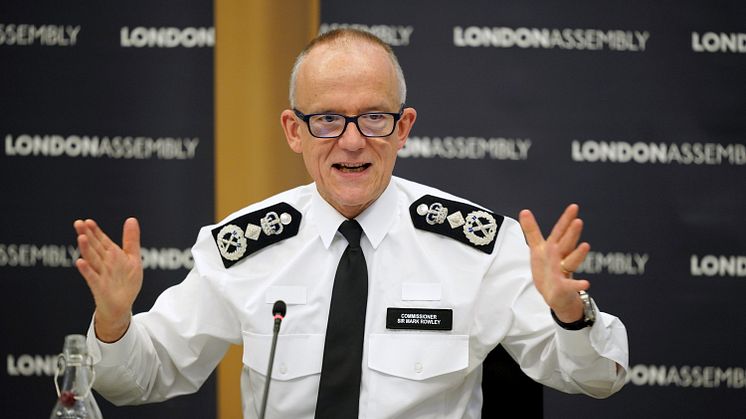
News -
Tackling violence against women and girls will require the whole system to step up
Commissioner Sir Mark Rowley and Deputy Chief Constable Maggie Blyth (Deputy Chief Executive of the College of Policing) reflect on the publication of a report into Violence Against Women and Girls, published on Tuesday, 23 July by the National Police Chiefs Council and the College of Policing.
Violence against women and girls is endemic, systemic and a threat to society on the same scale as terrorism.
More than one million such crimes were reported in just a year – 20 per cent of all recorded crime. One in every 12 women will be a victim of violence. One in every six murders are a result of domestic abuse. A staggering one in 20 people – more than two million of them – will be perpetrators of violence against women and girls in their lives.
In recent weeks we’ve seen numerous examples of men who have targeted women in the most horrific ways. These are not isolated cases and they continue to give us ever more grave cause for concern.
We must act to change the unacceptable reality for women and girls. Policing will play its part, but the scale and urgency of the challenge calls for a whole society response.
A report released today by the National Police Chiefs’ Council and the College of Policing sets out the current situation, the path we are taking and what urgently needs to happen next.
The same four Ps that are used so effectively in counter terrorism now guide our approach - protect individuals, relentlessly pursue perpetrators, prevent people from committing violence against women and girls, and prepare policing to effectively respond.
We’re overhauling the training given to officers across the country and we’re committed to drastically improving the experience of victims which is so often a barrier to reporting.
We’re working at pace to understand the worrying behaviours that drive violence against women and girls, identifying where intervention can put a stop to future escalation.
We’re transforming the way we investigate rape, resulting in a 25 per cent increase in arrests and a 38 per cent increase in charges nationally.
There are new approaches being rolled out across the country that give us great hope for what is possible. In London, the early results from the Met’s data-led targeting of the 100 most harmful offenders suggests we’re already seeing more dangerous men brought to justice and put behind bars. Their use of live facial recognition is also proving effective at identifying and scrutinising the actions of sex offenders who are in the community and who might otherwise have been able to hide their offending in plain sight.
But despite this progress, we’re not complacent. It’s the fourth P - preparing – which now stands between continued success and the unacceptable alternative.
This means specially trained investigators, better technology to detect and investigate offences, and victim support embedded in every case. It means a centralised policing hub to bring these capabilities together and drive improvements at a national level.
Crucially, it means working together and putting the right resources in place to deliver a safer society for women and girls.
Policing has and will continue to step up to meet the challenge, but we can’t just arrest our way out of the crisis. We need other parts of the system to step up too.
Offending is becoming ever more complex and we need a criminal justice system, already bursting at the seams where it isn’t broken, that is equipped to deal with that.
We need social services and healthcare providers to be set up to spot early warning signs of abuse, embedding a preventative approach where perpetrators are most likely to engage with mental health and substance abuse services.
We need education partners to teach children about healthy relationships as part of a nationally mandated curriculum.
We need to technology companies to come to the table, recognising their responsibility to introduce more robust safeguarding measures to stop abusers harming victims online.
We welcome the Government’s commitment to halving rates of violence against women and girls over the coming decade but it is not a goal policing alone can meet. We urge them to seize the opportunity to lead a new and ambitious approach where the whole-system contributes to making it a reality.
A version of this article was first published in The Times on Tuesday, 23 July.
